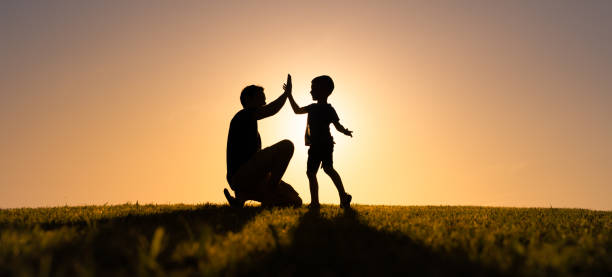Living Off the Grid – Advantages and Disadvantages
There are some advantages and disadvantages to Living Off the Grid. This article will discuss the advantages and disadvantages of living off the grid, how to build your own ‘grid’, and how to access quality food. It will also discuss some ways to avoid getting stressed out. For starters, you should plan for any unexpected costs and build an emergency fund to cover any unexpected costs.
Disadvantages of living off the grid
Living off the grid has many advantages, but it comes with some disadvantages as well. For one, it can be expensive, especially when you have to start from scratch and sacrifice many of the modern conveniences. It also means that you have to be self-sufficient and build your own paradise. On the other hand, living off the grid is also great for the environment.
The major benefit of living off the grid is the ability to live completely off the grid without relying on city utilities. This can be a great option for those who live in places where utilities are expensive and unreliable. On the other hand, living off the grid also means living off clean energy and reducing the impact of fossil fuels on the environment.
Another disadvantage of living off the grid is that you may not have the luxury of relying on regular utility supplies, such as electricity, water, and gas. In some cases, you may have to supplement the use of gas or wood for cooking, space heating, or water heating. Using solar energy devices is another way to meet your needs. For instance, you can use solar water heaters and ovens to cook food. You can also set up a back-up generator to keep essential appliances operating.
Another disadvantage of living off the grid is the inability to contact emergency services when you need them. Although it is possible to get by without help in most cases, there are certain situations that may become very dangerous and you will have to learn the local area well. So, if you’re interested in living off the grid, it’s worth taking the time to do the research!
Another disadvantage of living off the grid is that you might have to invest a lot more in a house and power system. However, these costs are offset by the cost savings you can get from living off the grid. In the long run, living off the grid will save you hundreds of dollars by reducing your expenses on food and other necessities. So, if you’re looking for a better lifestyle, consider living off the grid.
On the other hand, living off the grid can lead to loneliness. People crave social interaction, and off-grid living can leave you feeling lonely and depressed. While some people can survive being alone for months on end, others may become depressed after just a few weeks without interacting with other people.
Getting started is not cheap and you’ll need a lot of materials and tools to get started. A deep water well will also be required, and this will be expensive. You can’t really know how much it will cost until you start drilling.
Building your own ‘grid’
If you want to live off the grid, you must have a way to produce your own power. This is often done by installing solar panels on your roof or utilizing wind or water power. While the most popular way is to install solar panels, there are other ways to produce power and store it for later use.
First, you need to harvest water. This can be done by gathering rainwater or by installing a septic system. Alternatively, you can use an outhouse. The next step is to generate electricity. There are several popular methods of producing electricity, including wind turbines, solar panels and hydroelectric power generators.
If you already have a house, land and a well, you may be able to skip some of the upfront expenses. If not, you’ll have to invest in a compostable toilet and septic tank. You will also need to make sure you have enough water.
One of the best places to live off the grid is Florida, with year-round growing seasons, few water restrictions, and a sunny climate. In addition, there are many counties without building codes in this state, which makes it an ideal location for solar and wind panels.
Using solar power is an excellent way to generate your own power, but you must be realistic when it comes to the methods. Solar power is better than using generators, as it can provide more power for your home and is also better for the environment. Solar panels are also important if you want to work from home. Generators can be noisy, use a lot of gas, and are not a reliable option for all of your needs.
A smart efficiency is also crucial to build an off-grid home. In most older homes, the water heater is located in a column outside the home and is usually insulated. This column has a significant heating element, and a gas connection can efficiently heat water and keep it warm for a longer period of time. This makes it much easier to heat water and save money on electricity.
While living off the grid requires a significant commitment, the benefits are substantial. In addition to having the satisfaction of being self-sufficient and independent from the state, living off the grid will reduce your carbon footprint. It will also give you a more natural, healthier lifestyle. You will know exactly what goes into your body, and you’ll be less likely to get sick from a virus or a bacteria.
Getting access to quality food
Living off the grid is a lifestyle that can be rewarding but requires some sacrifices. Running water, indoor plumbing, and a steady supply of sugary treats and booze are among the things you’ll be without. Off-gridders will tell you that this is the whole point. But this lifestyle isn’t for everyone. Before starting your off-grid journey, make sure you know what you’re in for.
Living off the grid requires a large upfront investment, but it can be a rewarding experience. As long as you have a strong enough conviction, you can accomplish the task without too much hassle. And if you do encounter challenges along the way, you’ll be more likely to stay on track.
Getting access to quality food when living off-grid can be done through hunting, fishing, and gardening. It’s important to become knowledgeable about these three methods. But even if you don’t grow your own food, learning the art of these methods can help you get the essential nutrients and calories that you need in case of a power outage. Additionally, getting access to fresh produce from local farmers’ markets is a great way to support local economies, and it can also strengthen your bonds with the community.
While living off the grid is likely cheaper than regular living, it is still necessary to invest in land, a power system, shelter, and other supplies. It can take years to prepare, but you can eventually recover your initial expenses with the savings you’ve amassed.
Off-grid living is not for everyone, so research and experiment with it before making the decision. Off-grid living can be a great way to reduce your carbon footprint and get in touch with nature. Go into it with your eyes wide open, and be prepared for the challenges you’ll encounter.
When living off the grid, it’s important to consider raising livestock and farming your own food. This way, you can reduce trips to the nearest town or farm. In addition to this, you can save money by growing your own food organically. Using technology to deter animals from eating your crops can also reduce the need to travel to the local town for supplies.
Mail delivery is another convenience that may not seem very important at first, but when you’re living off the grid, it can be a reality. Mail is another way that mail can be delivered, and if you have no other way to get mail, you can hire someone to forward the mail for you. Regardless of how much mail you receive, you’ll still need to make arrangements for other necessities.













